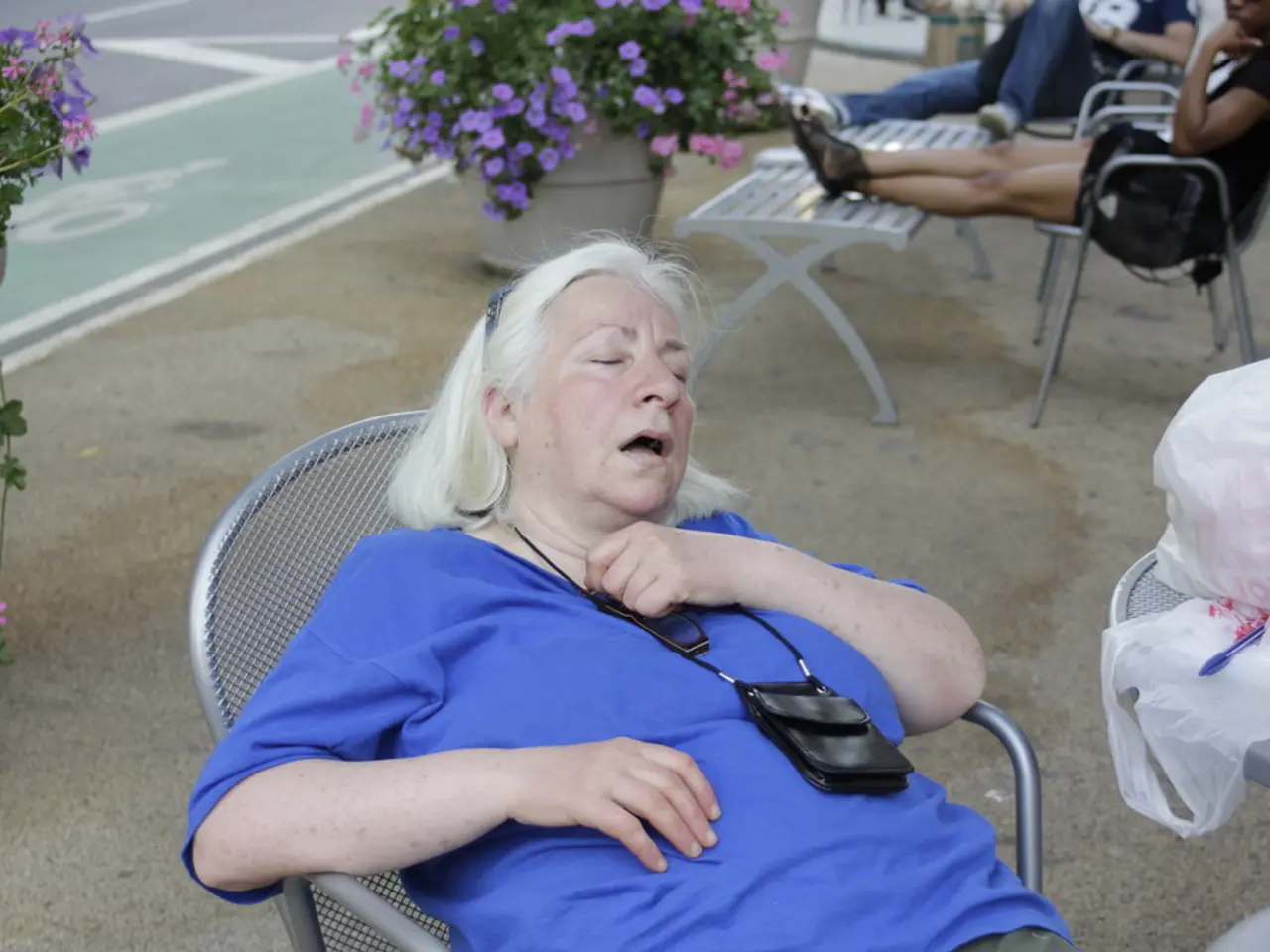Four Daily Habits Scientifically Shown to Alleviate Sleeplessness
In the realm of sleep disorders, insomnia stands out as a prevalent issue affecting a significant number of adults. This article explores evidence-based strategies to manage insomnia, focusing on Cognitive Behavioral Therapy for Insomnia (CBT-I), sleep hygiene practices, and aromatherapy.
CBT-I, the gold standard for treating chronic insomnia, is a structured psychotherapeutic approach that addresses the cognitive and behavioural causes of sleep disturbance. It involves changing thoughts and behaviours that negatively impact sleep, establishing a consistent sleep schedule, stimulus control, sleep restriction, relaxation techniques, cognitive restructuring, and more. Studies have shown that CBT-I improves sleep latency, duration, quality, and reduces insomnia symptoms effectively and sustainably [1][2][3].
Improving sleep hygiene involves behavioural and environmental strategies to promote natural, restorative sleep. Key recommendations include maintaining a regular sleep schedule, creating a relaxing bedtime routine, limiting exposure to screens and blue light, avoiding caffeine and heavy meals before bed, managing the sleep environment, limiting naps and fluid intake close to bedtime, increasing daytime exposure to natural light, and exercising earlier in the day [1][2][3].
While not as extensively studied as CBT-I, aromatherapy is used by some as a complementary practice to improve relaxation and sleep quality. Commonly used essential oils include lavender, chamomile, bergamot, and jasmine. Aromatherapy can be integrated into a bedtime routine to enhance relaxation and promote sleep onset [1]. However, it should be viewed as an adjunct to core behavioural strategies like CBT-I and sleep hygiene rather than a standalone treatment.
In summary, CBT-I remains the most effective evidence-based intervention for insomnia by addressing the cognitive and behavioural causes of sleep disturbance. Complementary sleep hygiene practices and aromatherapy support better sleep health. It's crucial to remember that insomnia can impact physical and mental health, as well as one's ability to perform basic tasks safely and efficiently.
This article is part of our commitment to provide up-to-date, valuable, and objective information on mental health-related topics. All our content is written by experienced mental health-wellness contributors, grounded in scientific research and evidence-based practices. For those suffering from insomnia, it's essential to seek treatment, as many insomnia sufferers do not, and commonly doled-out treatments may not be successful. If insomnia persists, consider taking an online insomnia test to check for sleep disorders.
[1] Harvard Health Publishing. (2020). Insomnia. Retrieved from https://www.health.harvard.edu/staying-healthy/insomnia [2] National Sleep Foundation. (2020). Sleep Hygiene. Retrieved from https://www.sleepfoundation.org/articles/sleep-hygiene [3] American Psychological Association. (2020). Cognitive Behavioral Therapy for Insomnia (CBT-I). Retrieved from https://www.apa.org/topics/cbt-insomnia [4] National Center for Complementary and Integrative Health. (2020). Aromatherapy. Retrieved from https://www.nccih.nih.gov/health/aromatherapy
- Poor mental health, such as anxiety and depression, can exacerbate insomnia, highlighting the importance of addressing mental health alongside sleep disorders.
- Cognitive Behavioral Therapy for Insomnia (CBT-I) has been proven effective in reducing symptoms of both insomnia and anxiety, making it a valuable tool in overall health-and-wellness.
- Science suggests that improving sleep quality through CBT-I, sleep hygiene, and aromatherapy may contribute positively to cognitive function and mental health.
- Insomnia is not just a sleep disorder; it can lead to physical health problems, impaired concentration, and decreased productivity, emphasizing the need for timely and effective treatment.




